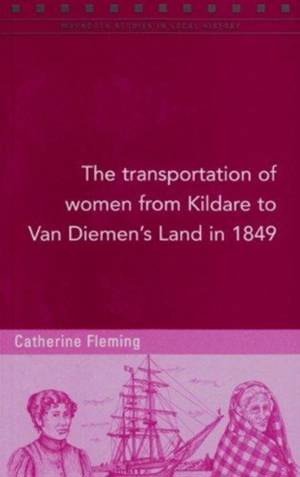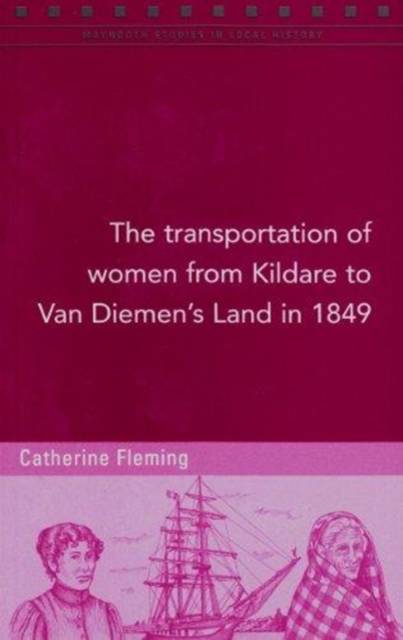
Bedankt voor het vertrouwen het afgelopen jaar! Om jou te bedanken bieden we GRATIS verzending (in België) aan op alles gedurende de hele maand januari.
- Afhalen na 1 uur in een winkel met voorraad
- In januari gratis thuislevering in België
- Ruim aanbod met 7 miljoen producten
Bedankt voor het vertrouwen het afgelopen jaar! Om jou te bedanken bieden we GRATIS verzending (in België) aan op alles gedurende de hele maand januari.
- Afhalen na 1 uur in een winkel met voorraad
- In januari gratis thuislevering in België
- Ruim aanbod met 7 miljoen producten
Zoeken
The Transportation of Women from Kildare to Van Diemen's Land in 1849
Catherine Fleming
€ 13,95
+ 27 punten
Omschrijving
More women convicts were transported to Van Diemen's Land from Ireland in 1849 than any other year. This is the story of several women from Kildare who made the arduous journey as the Great Famine raged. One was a married woman convicted of murder and two others were young women who deliberately committed the crime of arson in order to be 'sent out.' The youngest, Elizabeth Curry from Naas, was only thirteen when convicted and sentenced to transportation. Many of these convicts were first-time offenders and contradicted their stereotype as fallen women and hardened criminals. The book follows the history of these women from their convictions and sentencing in the court at Naas, to their arrival, following a long and dangerous journey, at their new home in the penal colony at Hobart. For many of these young women, transportation, despite its hardships, presented the opportunity to make a new life, emancipated from the poverty and economic deprivation of a famine-ridden Ireland. (Series: Maynooth Studies in Local History - Number 104)
Specificaties
Betrokkenen
- Auteur(s):
- Uitgeverij:
Inhoud
- Aantal bladzijden:
- 56
- Taal:
- Engels
- Reeks:
- Reeksnummer:
- nr. 104
Eigenschappen
- Productcode (EAN):
- 9781846823565
- Verschijningsdatum:
- 13/09/2012
- Uitvoering:
- Paperback
- Formaat:
- Trade paperback (VS)
- Afmetingen:
- 146 mm x 222 mm
- Gewicht:
- 81 g

Alleen bij Standaard Boekhandel
+ 27 punten op je klantenkaart van Standaard Boekhandel
Beoordelingen
We publiceren alleen reviews die voldoen aan de voorwaarden voor reviews. Bekijk onze voorwaarden voor reviews.









